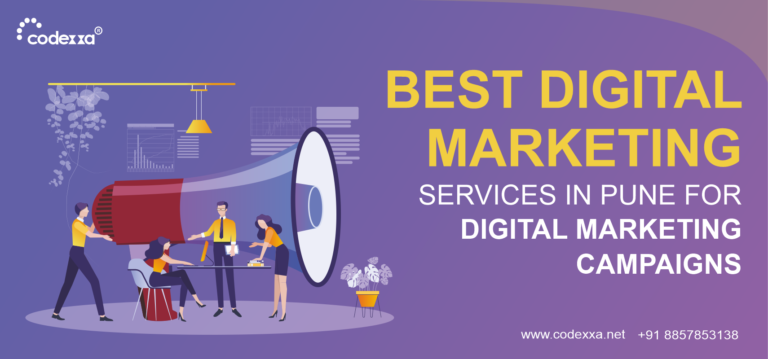Latest SEO and Social Media Marketing Services in India
- Search Engine Optimization {SEO}
A website can be optimized through a variety of techniques and tactics known as search engine optimization (SEO) to increase its exposure in search engine results pages (SERPs). The main objective of search engine optimization (SEO) is to have a website appear higher in search results when people input relevant queries. This increases organic (non-paid) traffic to the website.
- The following are some basic elements and ideas related to SEO:
- Keyword Research: Discovering the keywords and phrases that potential customers might use to get information about a specific company, good, or service is the first step in SEO.
- On-Page Optimization: This entails improving different components on distinct web pages to increase their search engine friendliness. This entails employing pertinent headers, strategically placing keywords, optimizing Meta tags (title tags, Meta descriptions), and making sure the website is organized clearly.
- Quality Content: Superior, pertinent, and worthwhile material is given precedence by search engines. In addition to drawing visitors, producing content that speaks to the interests and requirements of your target audience improves search engine rankings.
- Link Building: One of the most important parts of SEO is creating a network of high-quality inbound links or backlinks. Backlinks from respectable and pertinent websites are seen by search engines as a vote of confidence that attests to a website’s authority and reliability.
- Technical SEO: This entails optimizing a website’s technical features, including making sure it loads quickly, enhancing its responsiveness on mobile devices, resolving crawl issues, and building a sitemap. A website with a good technical foundation will perform better in search results.
- User Experience (UX): Search engines take into account user experience-related elements like overall usability, mobile friendliness, and page load times. Improved user experience also leads to better rankings.
- Analytics and Monitoring: As SEO is a continuous process, it’s critical to frequently assess performance. The success of SEO tactics, user behavior, and website traffic can all be analyzed with the use of tools like Google Analytics.
- Algorithm Updates: Search engines improve their algorithms often to provide users with more relevant and superior results. Maintaining and raising search ranks requires being aware of these modifications.
Businesses may improve their online presence, draw in targeted traffic, and fight more successfully in the digital market by putting SEO techniques into practice. It’s crucial to remember that SEO is a lengthy process, and outcomes might not be seen right away. Maintaining a consistent level of performance in the always-changing SEO landscape requires constant optimization and keeping up with industry trends.
- Social Media Marketing {SMM}
Using social media platforms to engage target audiences and promote products, services, or brands is known as social media marketing or SMM for short. Creating and disseminating content that promotes audience participation, increases brand exposure, and directs users to a website or desired action is the main objective of social media marketing.
- Key components and practices associated with Social Media Marketing include:
- Content Creation and Sharing: Businesses can produce and distribute a range of content on social media platforms, including text, photos, videos, and interactive components. The material is customized to fit the target audience’s preferences as well as the platform.
- Social Media Advertising: Numerous social media networks provide businesses with advertising alternatives. Through highly focused campaigns, paid social media ads help businesses reach particular demographics, interests, and behaviours. Sponsored posts, display ads, and video adverts are common forms of social media advertising.
- Audience Engagement: Because social media is by its very nature, effective SMM requires audience engagement. This entails actively engaging in discussions about the sector or specialty as well as replying to messages, mentions, and comments.
- Influencer Marketing: Working with social media influencers that have a sizable following is a well-liked SMM tactic. Influencers may assist companies in expanding their reach and promoting goods and services by utilizing the trust that they have developed with their following.
- Social Media Analytics: The performance of social media efforts must be assessed, and this requires tracking and analysing social media indicators. Analytics solutions help firms improve their strategy by offering insights into important performance measures such as conversions, reach, and engagement.
- Social Media Strategy: Objectives, target market, content planning, posting schedules, and KPIs are all outlined in a clear social media strategy. It guarantees that social media initiatives are in line with more general corporate goals.
- Platform Selection: Diverse audiences and content styles are catered to by various social media platforms. Companies must select platforms based on their target market and marketing objectives. Facebook, Instagram, Twitter, LinkedIn, Pinterest are examples of popular platforms.
- Community Building: Developing a relationship with followers and supporting user-generated content are key components of creating a community around a business or product. Companies can start forums, groups, or conversations to help engage the community.
The field of social media marketing is always changing due to advancements in technology, user behaviour, and social media platforms. To use SMM effectively, one needs to be flexible, creative, and have a thorough understanding of the target demographic. In the digital sphere, social media marketing may greatly boost consumer loyalty, brand recognition, and overall business success when done strategically.







